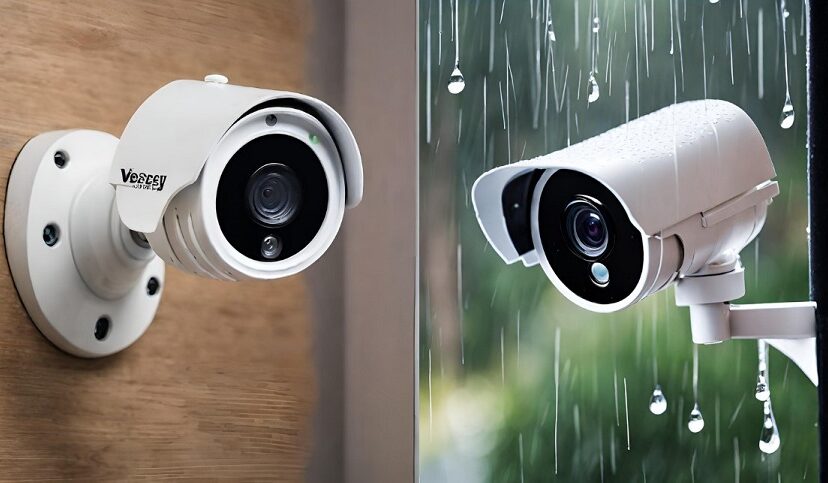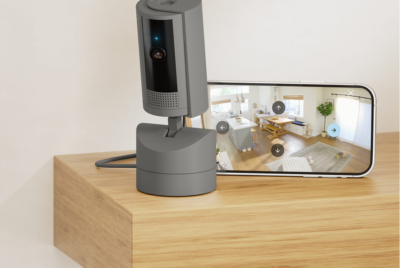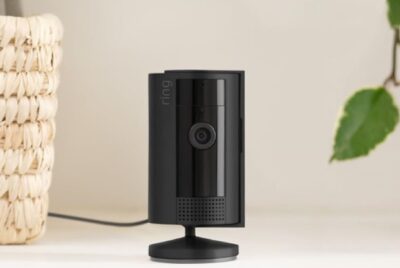Indoor vs. Outdoor Security Cameras
As a security enthusiast, I believe that investing in home security cameras is crucial to safeguarding your property and loved ones. There is a wide array of options available, and it can be challenging to decide between indoor vs. outdoor home security cameras. In this article, I’ll explore the differences, pros, and cons of each type, providing helpful suggestions to help you make an informed decision.
Let’s start by understanding what indoor and outdoor security cameras are. Indoor cameras are specifically designed to monitor the interior of your home. They are usually compact, discreet, and have features like two-way audio to communicate with family members or pets while you’re away. On the other hand, outdoor cameras are built to withstand various weather conditions and provide surveillance for the exterior of your property.
Before diving into the specifics, I’d like to emphasize the importance of home security cameras. Whether you live in a bustling city or a quiet suburban neighborhood, security threats exist everywhere. Having a reliable home security system, including cameras, acts as a strong deterrent against potential intruders and can provide valuable evidence in case of any untoward incidents.
Indoor vs. Outdoor Security Cameras – Indoor features
- Advantages. Indoor security cameras offer several advantages. Firstly, they provide a clear view of what’s happening inside your home, allowing you to keep an eye on children, elderly family members, or pets while you’re away. Moreover, they are discreetly designed, making them blend effortlessly with your home décor. Some advanced models also feature motion detection and can send real-time alerts to your smartphone, enhancing security further.
- Limitations. While indoor cameras are effective for monitoring the inside of your home, their scope is limited to indoor spaces only. They won’t be able to capture activities happening outside your home or at entry points like doors and windows. This drawback means that you may need to supplement indoor cameras with outdoor ones for comprehensive security coverage.
- Best Use Cases. Indoor security cameras are ideal for various scenarios. They are particularly useful for monitoring nurseries, playrooms, or areas where valuable belongings are kept. Additionally, if you have house staff or contractors coming in and out, indoor cameras can help ensure their actions are appropriate and professional.
Indoor vs. Outdoor Security Cameras – Outdoor features
- Advantages. Outdoor security cameras offer unique benefits that cater to the exterior of your property. They provide a visible presence, alerting potential intruders that your home is under surveillance. The robust weather-resistant design ensures they can withstand rain, snow, and extreme temperatures, ensuring year-round protection. Outdoor cameras are also instrumental in capturing crucial details like license plate numbers or identifying suspicious individuals lurking around your property.
- Limitations. One limitation of outdoor cameras is that they are more conspicuous compared to indoor ones, making them susceptible to tampering. Proper placement and strategic installation can mitigate this risk. Additionally, some outdoor cameras may not have two-way audio features, limiting your ability to communicate with people at your doorstep remotely.
- Best Use Cases. Outdoor security cameras are best suited for monitoring entry points, such as front doors, backyards, driveways, and garages. They are also ideal for larger properties or homes with extensive outdoor spaces that need comprehensive surveillance.
Factors to Consider
When deciding between indoor and outdoor security cameras, consider the following factors:
- Location. Determine the critical areas you want to monitor. If you primarily need to monitor indoor spaces, opt for indoor cameras. For outdoor coverage, invest in outdoor cameras, especially for vulnerable entry points.
- Weather and Durability. Consider the climate in your area. If you experience harsh weather conditions, outdoor cameras with robust build quality are essential for longevity.
- Connectivity Options. Choose cameras that offer secure remote access and easy integration with your smartphone or existing home security system.
Conclusion
As a security enthusiast, I urge you to thoroughly assess your home’s security needs and budget constraints before making a decision. the choice between indoor and outdoor home security cameras depends on your unique needs. Indoor cameras excel at monitoring the interior of your home discreetly, while outdoor cameras act as a visible deterrent and withstand various weather conditions. Combining both types can offer a well-rounded security solution, enhancing your peace of mind and protecting your home and loved ones effectively. Stay vigilant and make an informed decision to create a secure environment for you and your family.
FAQs
- Are wireless cameras suitable for outdoor use?
Yes, there are many wireless outdoor cameras available with weather-resistant features, making them suitable for outdoor installations. - Can I use indoor cameras outside if I protect them from the elements?
It is not recommended to use indoor cameras outdoors, even if protected, as they are not designed to withstand outdoor conditions, and it may void the warranty. - Do outdoor cameras require professional installation?
While professional installation can be beneficial, many outdoor cameras are designed for easy DIY setup, saving you installation costs. - Can I access my camera’s live feed on my smartphone?
Yes, most modern security cameras offer smartphone apps that allow you to access live feeds remotely. - Are there security cameras with facial recognition technology?
Yes, some advanced security cameras come with facial recognition features to identify familiar faces and send personalized alerts.




